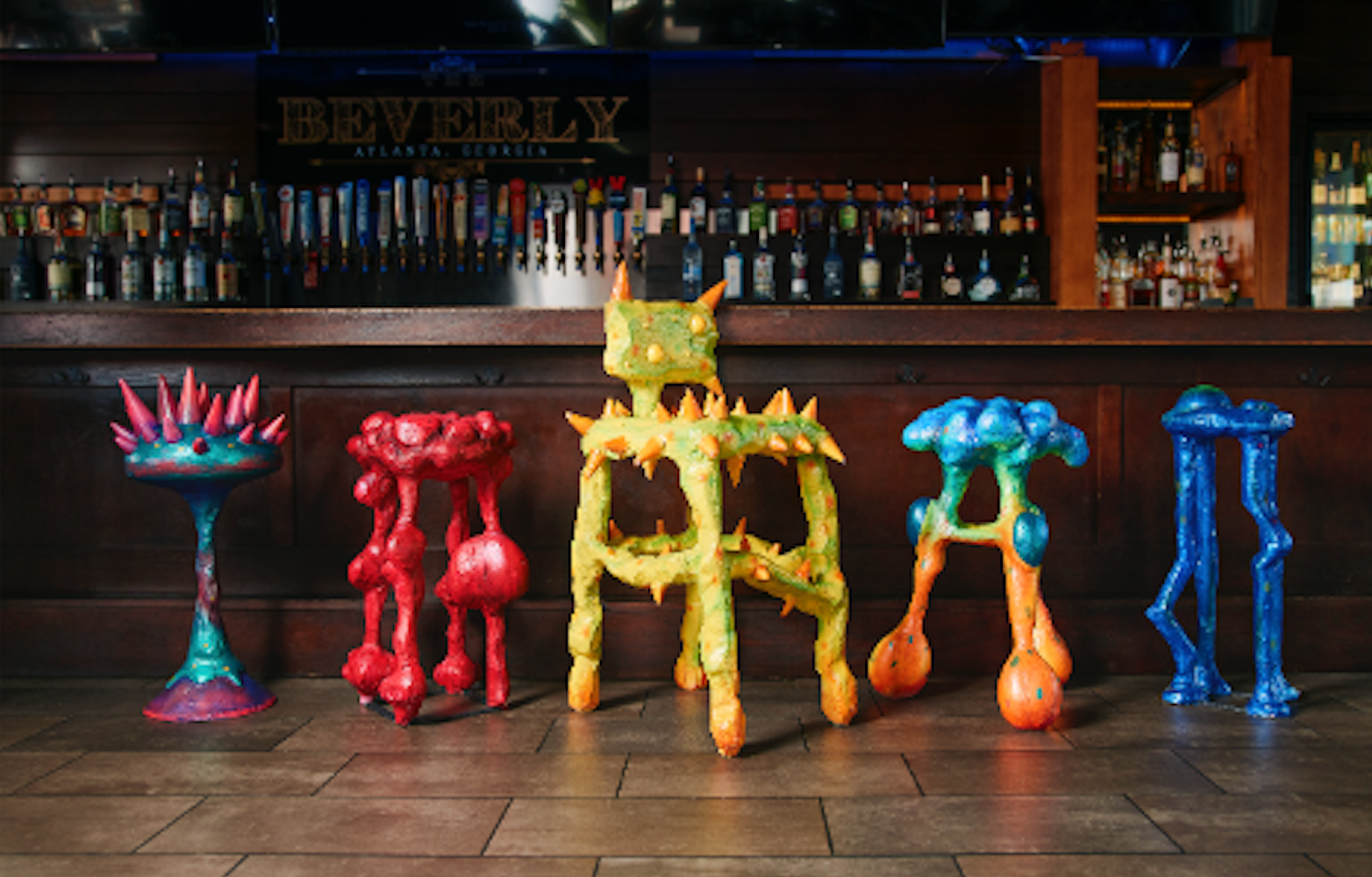Two Augusta-area businesses are featuring unusual new seating this month as part of a statewide effort to spark conversations about colon cancer and the importance of early detection.
Cork & Flame in Evans and Ubora Coffee Roasters in Augusta have installed bright, sculptural barstools from Georgia CORE’s “Weird Looking Stools” campaign, a public awareness initiative designed to highlight symptoms of colon cancer and encourage screening.
The stools, created by artist Julian Scalia, visually represent warning signs such as blood in the stool, abdominal pain, and changes in bowel shape.
Each seat includes a QR code linking visitors to screening information, early detection resources and survivor stories, according to a press release from the Georgia Cancer Center.
“Colon cancer is the second-leading cause of cancer deaths in Georgia, and diagnoses among adults under 50 are rising,” said Lynn M. Durham, EdD, president and CEO of Georgia CORE. “We teamed up with the ad agency Chemistry who dreamed up the concept and artist Julian Scalia who brought it to life to spark life-saving conversations.”
Dr. Sharad A. Ghamande, Director for Gynecological Oncology at Augusta University and Acting Director of the Georgia Cancer Center, helped bring the campaign to Augusta. A former Georgia CORE board member and owner of Cork & Flame, he hosted a kickoff event for the installation Thursday night.
“We are happy to be a part of this incredibly creative and unique awareness campaign,” Ghamande said. “Talking about colon health shouldn’t be uncomfortable. When people see something unusual, like these bar stools, a conversation starts. Those conversations can save lives.”
The stools are expected to remain at Cork & Flame and Ubora Coffee Roasters for several weeks, according to a press release from the Georgia Cancer Center.
Georgia CORE hopes placing them in everyday community spaces will help reduce stigma around colon health and encourage more people to get screened.
“Screenings help us catch cancer earlier, when outcomes are dramatically better,” Durham said. “Colonoscopies not only find colon cancer early but can remove polyps before they ever become cancer. It’s both prevention and early detection in one.”
Current guidelines recommend that adults begin screening at age 45, or at 40 for those with a family history of the disease, according to a press release from the Georgia Cancer Center. While noninvasive stool-based tests are available, colonoscopies remain the gold standard.
Ghamande noted that although radiation therapy is commonly used for rectal cancers, prevention and early detection are the strongest defenses against most colon cancers.
The “Weird Looking Stools” campaign launched in September and will continue rotating to communities across Georgia through the end of the year.
More information is available at weirdlookingstools.com.









